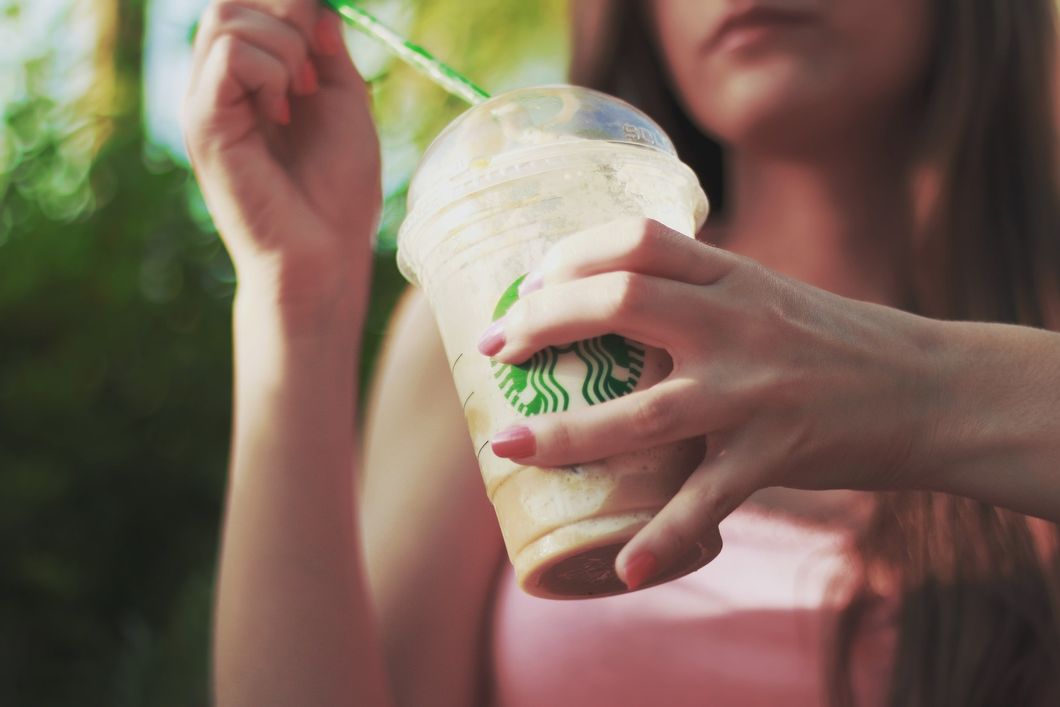Have you ever considered how much plastic that you use in a month? A few weeks? One week? What about just a single day?
Plastic, more specifically, one-use plastic is detrimental to you, to the Earth, and to wildlife. Have you or anyone you know ever stopped to think about the amount of plastic that we wipe through, or are even conscious about what using it only once is doing to the environment around us?
If your answer to any of those questions is no, then I have a lesson for you.
There is a myriad of reasons that I could list here for you regarding why we should be utilizing our resources and completely avoiding using plastic, but I'll dumb it down to 3 things.
1. One-use plastic covers a lot of grounds and must be addressed.

Photo by Javier Molina on Unsplash
When it comes to one-use plastics, there's a long list of them which is firsthand, why we need to draw attention to it. These things include plastic forks and knives, plastic spoons, plastic shopping bags, plastic coffee cup lids, plastic water bottles, styrofoam and plastic take-out containers, and the biggest one - plastic straws. Because there are so many of these different things, it can be difficult to recognize when we're using it unconsciously and in turn, can be just as challenging to change our habits to not using them as persistently; eventually, not at all.
According to the U.N. Environment, some more of these one-use plastics that are found in the environment in the order of their magnitude include: cigarette butts, plastic drinking bottles, plastic bottle caps, food wrappers, plastic grocery bags, plastic lids, straws and stirrers, other types of plastic bags and foam take-away containers.
2. Very little of these plastics get recycled and are not biodegradable.

Photo by Jon Tyson on Unsplash
I personally go to Starbucks and Dunkin Donuts quite a bit, and it took me a while to realize how much of their one-use plastic goes straight to waste every day. I see garbage cans all around me full of these empty plastic drinking cups and say to myself: the amount of plastic thrown away after being used one time is INSANE. The other bad thing about this is that people get lazy and decide to be really rude and pollute the beautifully crafted Earth - that we ALL live on - with their plastic that they don't want to throw away into a garbage can. These plastics end up on the beach, in the ocean waters, ponds, lakes, fields, streets, and in stores. They virtually appear anywhere; have you ever been to so many places before and seen plastic everywhere you go? This is where the problem truly lies.
Because of their material makeup, plastic and styrofoam can take up to thousands of years to decompose, and in the meantime, it can contaminate soils and water that wildlife resides in. There is a toxic makeup of chemicals in plastics that get transferred to animal tissue, specifically when they try to ingest and digest it. This enters the human food chain and can cause damage to nervous systems, lungs and reproductive organs in both humans and animals. Does it make any more sense now?
3. One-use plastic must go, and here's how we can stop using it.

Photo by Will Cornfield on Unsplash
Converting our lifestyles to reusing things and cutting out plastic is actually pretty simple, as long as we realize each time we're about to use something plastic and are able to stop ourselves. Using cloth or reusable bags when you go grocery shopping or to a convenience store is a big one. Buying our own coffee mugs and cups to use when we go out to get a coffee, a soda, tea, you name it. Avoiding establishments that don't offer non-plastic options to you is another little something that we can watch out for and warn ourselves about.
One thing we're constantly asked when we're eating at a food court or a fast-food restaurant is whether we'd like to dine in or carry our food out. If we change from taking out to dining in, even if it means taking food with no lid on it, we can avoid plastic cutlery that comes in loads of plastic for us to use. When taking food to go, ask for a paper bag if possible because these can be re-used at a later time when you know you're picking food up.
Recycling our plastic, when we do use it, is something we should get into the habit of doing. Ever since suggesting to my parents that we should recycle our plastic and cardboard after using it at home, it's become a habit to throw this stuff into our recycling bin in our garage right outside of an easily accessible door.
Becoming informed as much as possible and getting to know what things are and aren't recyclable in our communities will enhance and enlighten our outlooks on this global issue. If you're able to convert your lifestyle to plastic-free, get as many of your friends, loved ones and family on this same kick. I promise you that one person at a time, we can change the way our beautiful world is being treated.

















